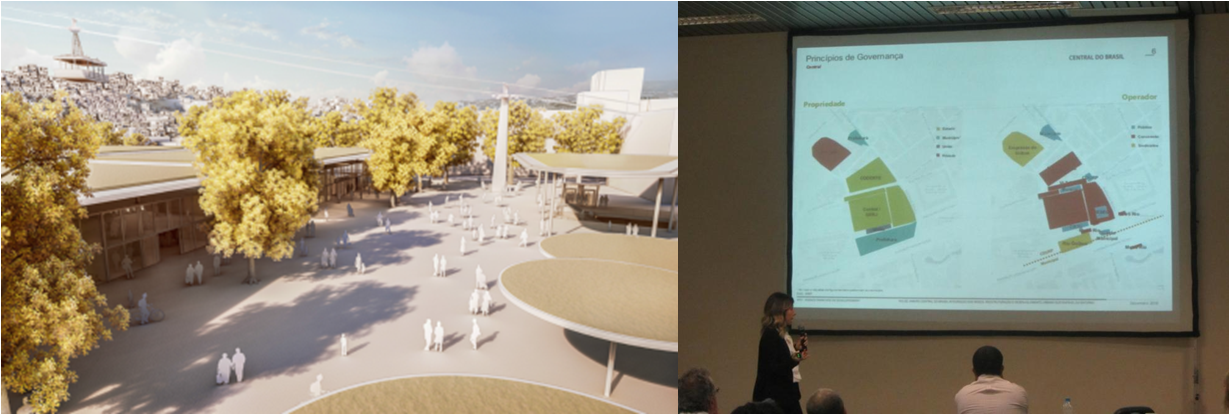Technical Cooperation Brazil – Final workshops present Central do Brasil (RJ) and Palmeiras-Barra Funda (SP) studies’ conclusions
As part of the technical cooperations with São Paulo and Rio de Janeiro States, two pre-feasibility studies for the transformation of Central do Brasil, in Rio de Janeiro, and Palmeiras-Barra Funda, in São Paulo, into new generations stations are financed by AFD. These studies are being developed by Egis–Arep consortium since April 2018. CODATU participates providing technical assistance.
In this context, in December 2018, two events were held to present the results of the third and last phase of both studies. The Mission 3 consists of a further detailing of one of the proposed scenarios in Mission 2 and the presentation of the Action Plan including deployment recommendations, implementation costs, recommended institutional and financial arrangements, phasing and main expected difficulties.
At the meeting in Rio de Janeiro, held on December 10th, a final scenario was presented considering the last changes suggested in the Central do Brasil intervention perimeter, such as the João Ricardo Tunnel, the buses terminals and the Centro Popular Leonel Brizola. The Action plan showed clearer the conditions of a number of buildings where interventions are proposed and the consequential financial and governance efforts required for the project success. In addition, the first estimation of CAPEX and operation revenues was presented, as well as some points for particular attention and recommendations for study future phases.

View of Central do Brasil neighbourhood (left) and Action Plan presentation (right)
The workshop in São Paulo was weld in September 12nd. The meeting allowed presenting the Palmeiras-Barra Funda station project views taking into account the choices made on September, such as the photovoltaic roof over the “commercial street” and the north access ramp and stairs. Cycling infrastructures were considered in order to connect existing bike lanes and offer new bike parking around the station. The Action Plan brought some project governance proposals, as well as the interventions phasing. Moreover, implementation costs estimation and project risks were presented.

View of Palmeiras-Barra Funda station (left) and scenario presentation (right)
In conclusion, in both meetings, the consultants outlined the importance of establishing a long term strategy and its consolidation in a specific Master Plan. The pre-feasibility studies will help decision-makers to evaluate the relevance of pursuing into feasibility studies, more detailed, for both stations.
